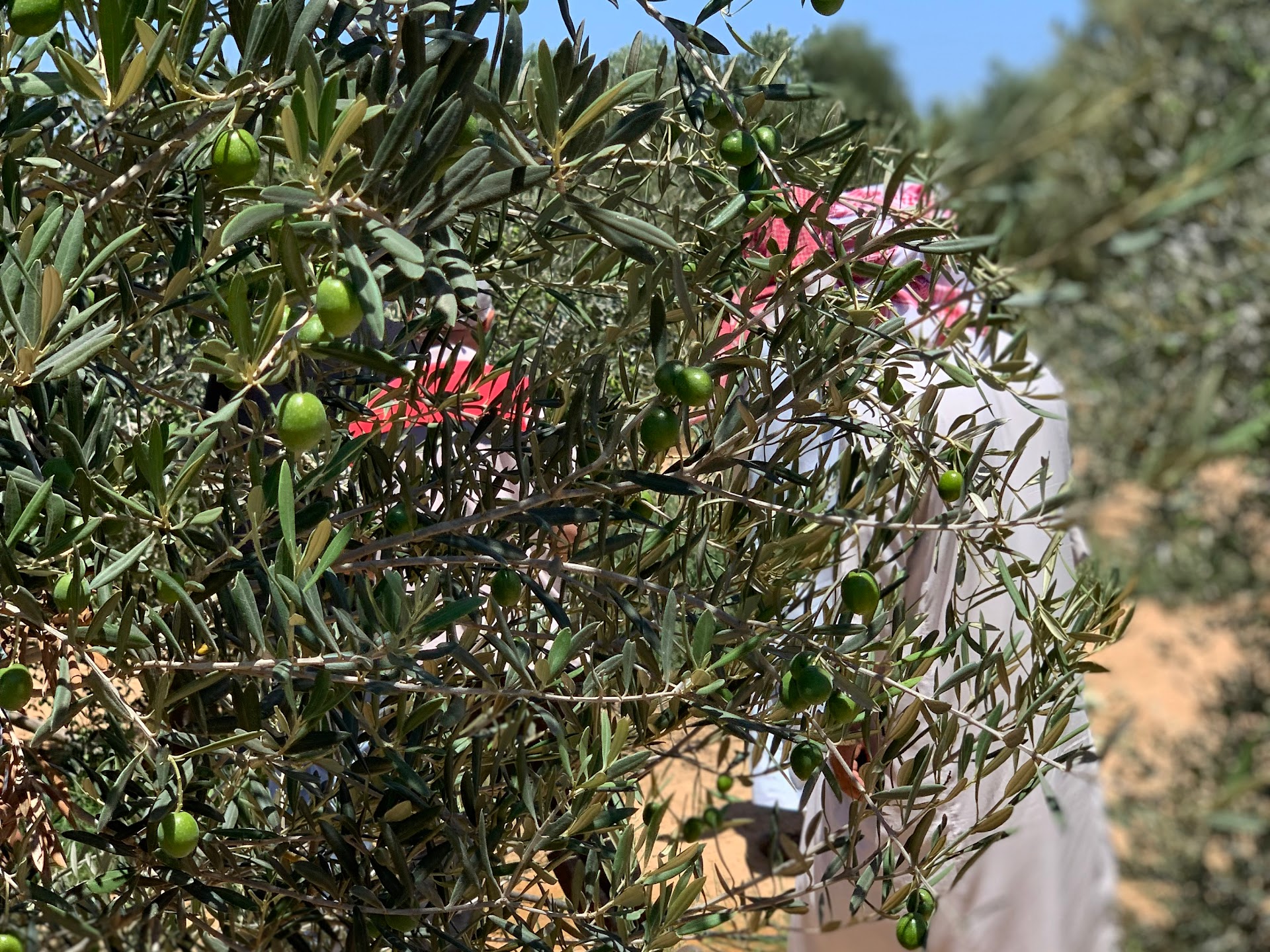How Egypt and UNDP are working to protect farmers and crops with inclusive insurance.
October 13, 2024

UNDP Photo/Yomna Mohamed
Once celebrated for their resilience, olive trees in Egypt now face unexpected challenges due to climate change. Historically a robust and resilient crop, olives are suffering as warmer winters disrupt their growth patterns, leading to an 80% drop in production in 2021.
Disruption to Egypt’s olive production reflects wider agricultural issues within the region and globally, as climate change introduces new risks each year. Major hazards like floods, sandstorms, rising sea levels, and droughts have placed Egypt as the 24th most vulnerable country to natural disaster risks globally. Especially threatened is the Nile Delta, a vital agricultural hub and host to 18 million citizens – almost a quarter of Egypt’s population —now increasingly prone to flooding.
Through the United Nations Development Programme (UNDP) Insurance and Risk Financing Facility, efforts are underway to increase financial protection to rising risks in Egypt. These efforts aim to protect not just the agricultural yields but the heart of Egypt’s cultural and economic identity.
UNDP in Egypt, in partnership with the Financial Regulatory Authority (FRA), is spearheading Inclusive Insurance & Disaster Risk Financing to create a landscape of inclusive insurance products tailored to protect Egyptian farmers and communities from these pressing climate threats.
Our "Inclusive Insurance and Risk Financing in Egypt" diagnostic study outlines Egypt’s key risks, the current inclusive insurance and disaster risk finance landscape. It also sets out recommendations to advance inclusive insurance and risk finance as critical tools for development and economic growth.
To address growing challenges and limited financial protection, inclusive insurance focuses on affordable and accessible insurance products that meet people’s actual needs. The new insurance law in Egypt includes provisions for this sector. Currently, disaster response and recovery in Egypt relies on budget reallocations, aid, and post-disaster borrowing; however, a formal disaster risk financing strategy has yet to be developed.
Strengthening the enabling environment for insurance, developing agricultural insurance, and creating a comprehensive disaster risk finance strategy will be crucial in providing some protection against climate-induced risks, and a step towards helping farmers secure their future in an unpredictable climate. To this end, Egypt is making significant progress, as evidenced by the newly introduced Insurance law. This legislation offers some protection against climate-induced risks like droughts and pests, with a particular emphasis on microinsurance. While this policy marks an important advancement in supporting farmers, gaps remain, particularly concerning soil deterioration and storage losses.
To ensure a comprehensive strategy, UNDP is collaborating with a range of stakeholders, including government agencies, the private sector, academia and other international organizations. With our partners, we are leveraging the insights and resources needed to build a more resilient agricultural sector and safeguard vital crops.
The story of Egypt’s olives, once resilient and now vulnerable, is a clear call for the international community to act decisively in building a sustainable future. This Disaster Risk Reduction Day, we stand with local farmers, reinforcing our commitment to building resilience in the face of climate change. By promoting inclusive insurance solutions and advocating for comprehensive risk financing strategies, we aim to safeguard the livelihoods of farmers and ensure the sustainability of Egypt's agricultural sector.

 Locations
Locations